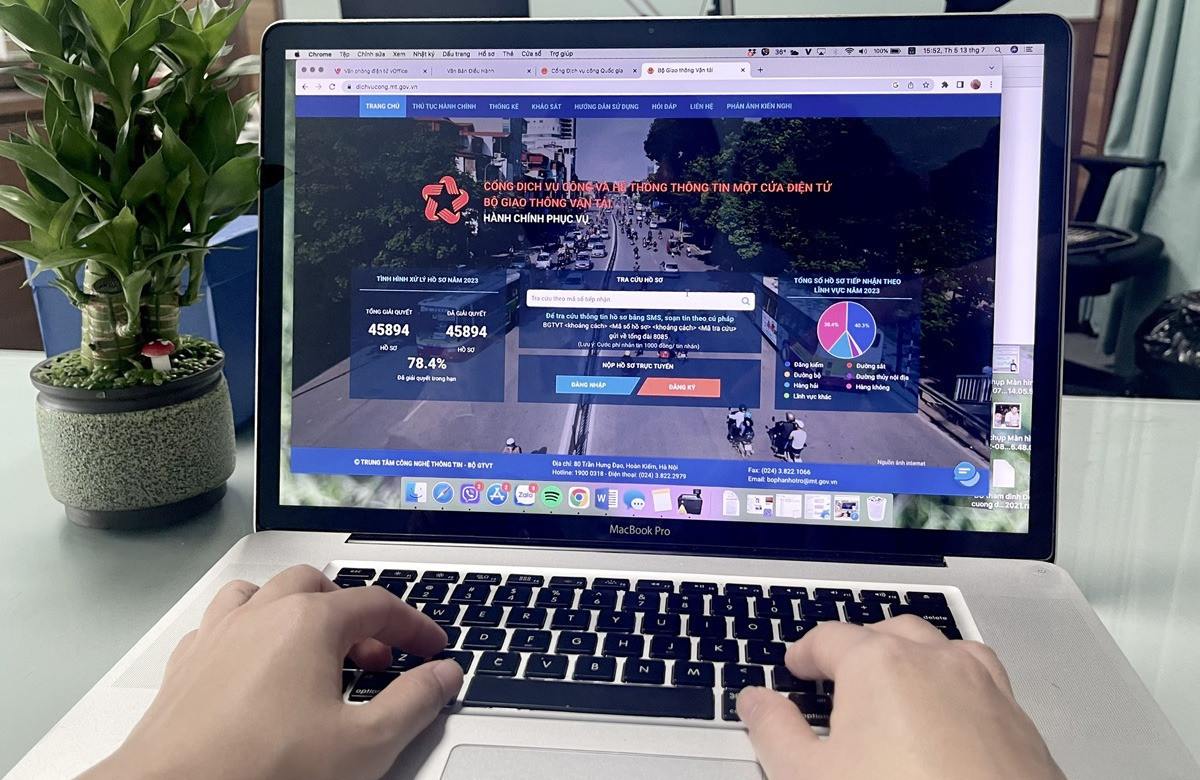
The ranking of electronic/digital government development of 193 member countries of the United Nations has been implemented every two years since 2003, aiming to help countries grasp trends in order to set up strategies for digital government in the future
EGDI 2024 (E-government development index) which has been released by the UN shows that Vietnam for the first time has been named among the countries with ‘very high’ levels in e-government development. It ranks 71st, or 15 grades higher than 2022.
In ASEAN, Vietnam has surpassed Brunei to gain the fifth position, or one position higher than 2022. Among the group of 55 countries with lower average incomes, Vietnam is one of the five countries with a very high EGDI 2024.
EGDI is calculated based on three major indexes, including TII (telecommunications infrastructure index), HCI (human capital index) and OSI (online service index).
The analysis by the National Innovations Center about EGDI 2024 shows that Vietnam’s three major indicators have improved in both value and rankings, especially in human resources and value of telecommunications infrastructure.
Vietnam had a 0.7267 scores in HCI, ranked 79th, a 36 grade promotion compared with 2022. It had a 0.8780 scores, ranked 67th in TII, a 7-grade promotion compared with 2022. As for OSI, the figures are a 0.7081 score, the 75th position or one grade improvement compared with 2022.
In terms of value, the general index on Vietnam’s e-government development grew by 13.6 percent and TII witnessed the sharpest growth, by 25.9 percent, followed by OSI with 9.2 percent and HCI by 5.3 percent.
Of the three major indexes, Vietnam ranks ‘very high’ in telecommunication infrastructure index, and ranks ‘high’ for the two remaining indexes.
People, businesses get bigger benefits from digital transformation
Vu The Binh, deputy chair and secretary general of the Vietnam Internet Association, commented that the upgrading in Vietnam’s EGDI is extremely good news, which reflects the country’s great efforts in the development of telecommunications and internet development, human resources and online services in the two years.
“The improvements of indexes show that people and businesses in Vietnam now receive higher benefits from digital services and applications,” Binh said.
Emphasizing the strong improvement of the TII, Binh said the index is based on the number of internet users, mobile subscribers, wireless broadband subscribers and broadband access capability. Of these, the index on broadband access capacity is a new index which appears in this year’s report.
“We can see clearly the growth of the indexes in broadband mobile subscribers in the last two years. It is also obvious that the broadband service fees in Vietnam have become very reasonable for people’s access,” Binh said.
Nguyen Quang Dong from the Vietnam Digital Communications Association said the higher TII score shows the strong determination and investment in digital transformation which has brought initial positive results. The contribution by Vietnamese businesses is noteworthy, especially to two major pillars, TII and HCI.
According to Dong, the UN’s assessment is consistent with the real situation of Vietnam’s digital technology development, and with other tools.
A survey by Google & Bain Company shows that Vietnam is the fastest growing internet economy in ASEAN.
“This implies the great potential of digital technology, and therefore, Vietnam’s policy on prioritizing investment in digital technology and considering it a breakthrough as shown in the recent article by Party Committee Secretary General To Lam is reasonable.
With the view that infrastructure needs to be ‘one step ahead’, digital infrastructure development is a strategic priority, together with energy infrastructure and transport infrastructure.
However, Dong stressed that there are still many things that Vietnam needs to do to compete with its rivals, including ASEAN countries.
According to EGDI 2024, other ASEAN countries have also improved their situations, which shows they have made great strides in digital transformation.
Vietnam is still behind Singapore, Thailand, Malaysia and Indonesia in the race to attract global BigTechs. Also, improving OSI is also a matter that Vietnam needs to pay high attention to in the time to come.
Countries are grouped into four levels as follows: very high EGDI values, high EGDI group, middle EGDI, and low EGDI values.
Van Anh